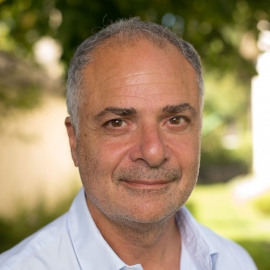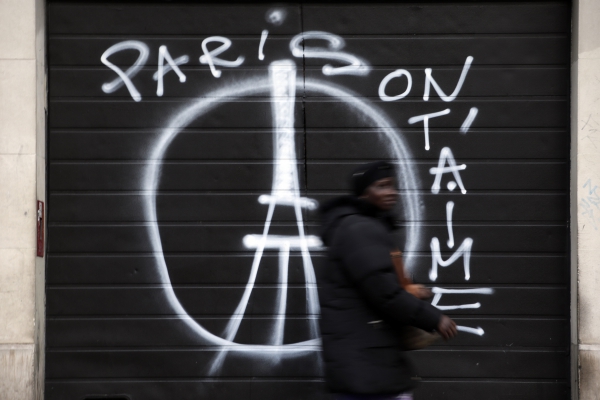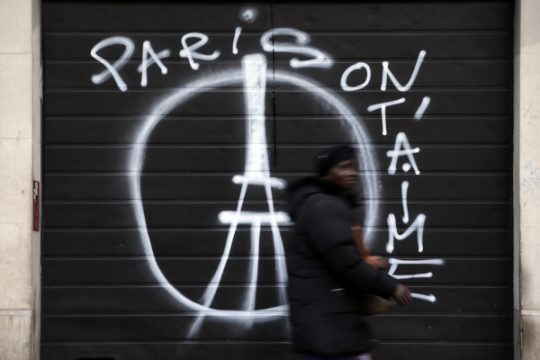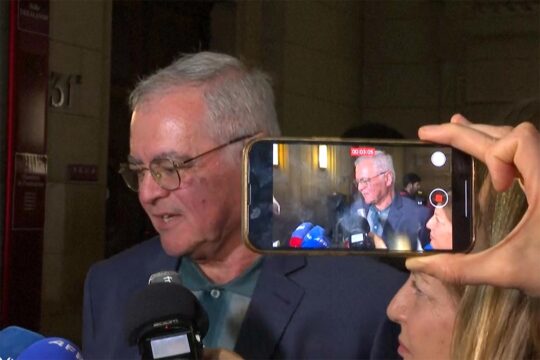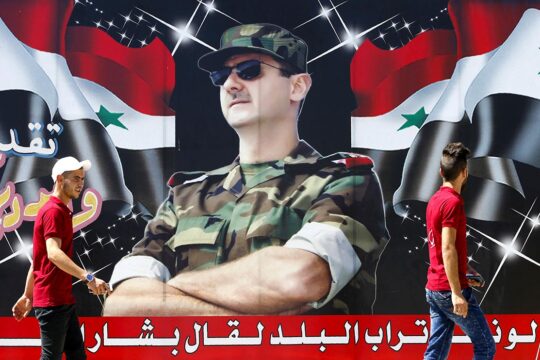First comes compassion for the victims and their families, and of course solidarity. After the initial shock of the carnage also come the emotions: anger, thirst for revenge, the temptation to reduce the attackers to barbarians or criminal thugs, as if denying that they were also motivated by an ideology. This tragedy obliges us to take stock of them but also define ourselves and our values. As Albert Camus rightly said, “not to call things by their proper names is to add to the suffering of the world”. Fighting Daesh requires first understanding those who have chosen to fight the West as their enemy, but also determining our position on a terrible conflict in which the only thing the regime of Bachar Al Assad and Daesh have in common is their capacity to inflict death on their fellow citizens.
Whether we like it or not, Daesh offers disoriented young people a substitute identity and an ideal of purity, albeit a completely twisted one. Indoctrinated by Daesh’s culture of death, these young people think that their sacrificial crime will wash away the suffering of Moslems, from Chechenya to Gaza, Afghanistan to Syria. Almost all these young people come from formerly colonized societies and have not found their place in a self-doubting Europe that has never fully recognized the extent of its colonial crimes. To say this is not to justify in any way the Paris attacks, it is simply to highlight the need for stronger policies to de-radicalize these young people. Such policies must take into account their feelings of social and cultural confusion.
The Paris attacks also force us to look at ourselves. The Western governments that have embarked on military operations in Iraq and Syria have led their people to believe that war would be painless. They have used their air forces to conducted war from the sky, as if war could be both surgically clean and cause no deaths on the NATO side. This is pure illusion, because war is always dirty. And it has no respect for borders in a conflict on Europe’s doorstep that has already killed 250,000 people and pushed more than 10 million Syrians into internal or external exile.
That brings us to the main challenge facing us. The risk – a trap set by Daesh – is that the tissue of society breaks down, with communities withdrawing into themselves and fighting each other, Moslems being stigmatized, the state of emergency leading to loss of fundamental freedoms, multiculturalism eroded and those who are different regarded with suspicion. Speaking on French television, writer and producer Raphaël Glucksman warned of the danger, that we end up finishing the work started by Daesh. That would indeed by a trap, and it would mean civil war. From former Yugoslavia to Ukraine, we have learned in the past 20 years that even in Europe, peace remains fragile and no-one can think they are immune from conflict.
For the politicians there is a strong temptation to close the borders, which is understandable right now. It is also understandable that the arrival of hundreds of thousands of refugees creates fear, people fleeing Iraq and Syria who are nevertheless also victims of Daesh, and of the Syrian regime and armed groups. The challenge, however, is to remain an open and tolerant society.
We know the response to the attacks will be increased security and strict application of the law. That is necessary, but is not nearly enough. It also needs to be political and cultural. We also need to look again at the alliances formed by Western governments. To what extent does Saudi Arabia, heavily armed by the West to the benefit of our trade balances, bear some responsibility for the rise of Sunni extremism?
The response to the 50 million dead of the Second World War was to develop rule of law in our societies and build the European Union. Today, the response should be the same: protect fundamental freedoms, maintain rule of law and build Europe. That way we will not be digging our own graves as Daesh would like.

